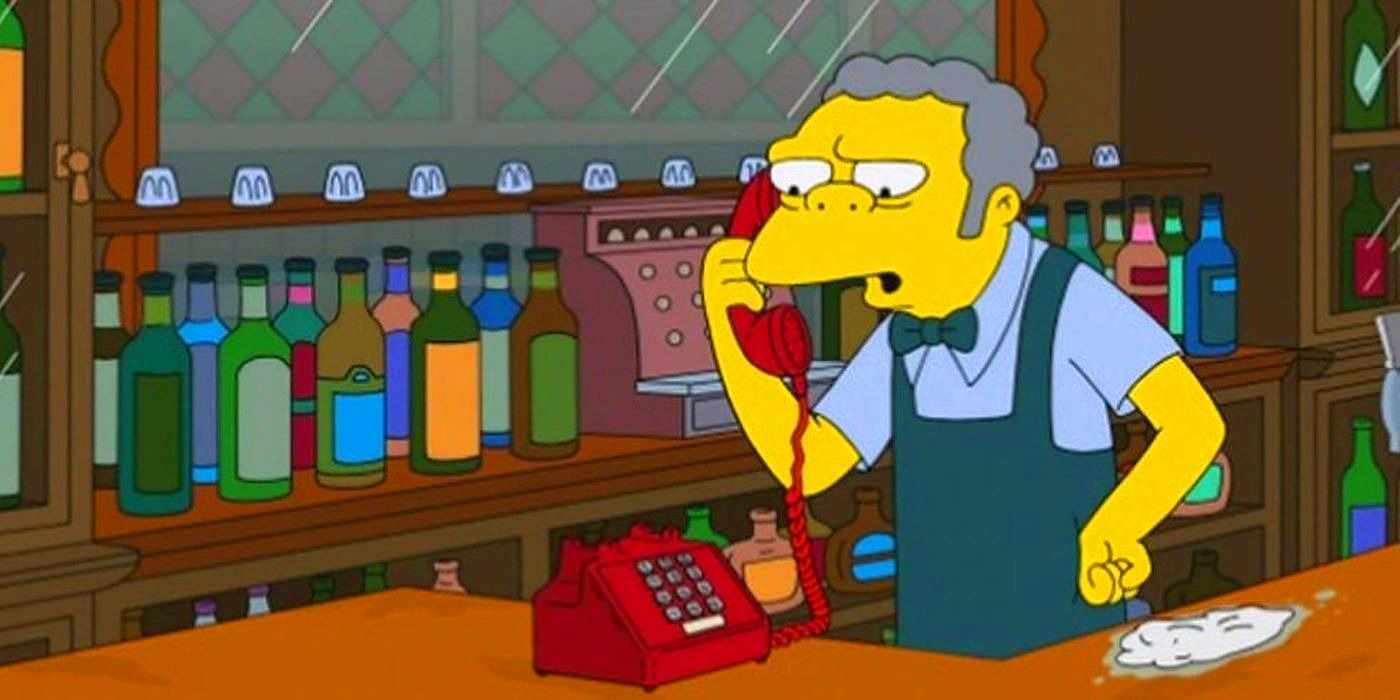Uncategorized
The Complete Guide to Simpsons Character Names: From Homer to Sideshow Bob
The Simpsons has been entertaining audiences for over three decades, creating one of the most extensive and memorable casts of characters in television history. With hundreds of unique personalities populating Springfield, each character comes with carefully crafted names that often carry hidden meanings, cultural references, or clever wordplay that reflects the show’s brilliant writing.
Whether you’re a longtime fan looking to test your knowledge or a newcomer wanting to understand the rich tapestry of Springfield’s residents, this comprehensive guide will walk you through the most important character names and their fascinating origins. From the nuclear family at the heart of the show to the quirky townspeople who make Springfield feel alive, every Simpsons character names tell a story.

The Simpson Family: Core Character Names and Their Meanings
At the center of this animated universe sits the Simpson family, whose names were carefully chosen by creator Matt Groening. Each family member’s name carries special significance and reflects their personality traits in subtle ways.
Homer Simpson serves as the show’s protagonist, named after Groening’s own father. The name “Homer” also references the ancient Greek poet, creating an ironic contrast with the character’s often simple-minded nature. This clever naming choice exemplifies the show’s sophisticated humor wrapped in accessible comedy.
Marge Simpson (née Bouvier) takes her first name from Groening’s mother, maintaining the family tradition. Her maiden name “Bouvier” connects to the famous Kennedy family, as Jackie Kennedy was born Jacqueline Bouvier, adding a touch of American aristocracy to the character’s background.
Bart Simpson represents perhaps the most clever naming choice in the series. His name serves as an anagram for “brat,” perfectly capturing his mischievous and rebellious nature. This ten-year-old troublemaker embodies every parent’s nightmare and every child’s hero, making his name both memorable and fitting.

Lisa Simpson shares her name with Groening’s sister, continuing the family naming pattern. Lisa’s character development from a supporting role to the moral center of the show demonstrates how character names can evolve beyond their original inspiration to represent deeper themes of intelligence, activism, and integrity.

Maggie Simpson, the perpetual baby of the family, completes the Simpson children with another family reference. Her character’s limited dialogue but significant impact on storylines proves that even the youngest family members deserve memorable names that stick with audiences.

Springfield’s Most Iconic Secondary Characters
Beyond the Simpson family, Springfield bursts with colorful characters whose names have become part of popular culture. These supporting characters often steal scenes and create lasting impressions through their distinctive names and personalities.
Ned Flanders stands as Homer’s eternally optimistic neighbor, whose name suggests both friendliness and religious devotion. The surname “Flanders” evokes images of medieval Christian devotion, perfectly matching his character’s unwavering faith and moral compass.

Moe Szyslak runs Springfield’s most famous dive bar, and his name reflects both his gruff personality and Eastern European heritage. The difficult pronunciation of “Szyslak” adds to his character’s rough-around-the-edges appeal while maintaining authenticity to immigrant experiences in American towns.

Barney Gumble serves as Homer’s drinking buddy and represents the show’s exploration of alcoholism with both humor and pathos. His surname “Gumble” suggests both his tendency to mumble when intoxicated and connects to American broadcasting history through Bryant Gumbel.

Apu Nahasapeemapetilon brings cultural diversity to Springfield while running the Kwik-E-Mart. His extremely long surname creates comedic opportunities while representing authentic South Asian naming conventions, though the character has evolved significantly since the show’s early seasons.

The Villains and Antagonists of Springfield
Every great animated series needs memorable villains, and The Simpsons delivers with characters whose names often hint at their nefarious natures or provide ironic contrasts to their actions.
Montgomery Burns (often called Mr. Burns) serves as Springfield’s primary antagonist and Homer’s boss at the nuclear power plant. His name evokes both wealth and the potential for destruction, perfectly encapsulating his role as a ruthless businessman who prioritizes profit over people’s welfare.


Sideshow Bob (Robert Underdunk Terwilliger) represents one of television’s most sophisticated villains. His full name suggests both intellectual pretension and hidden depths, while “Sideshow Bob” reflects his origins as Krusty’s television sidekick before his transformation into Bart’s nemesis.

Snake Jailbird embodies Springfield’s career criminal element with a name that couldn’t be more direct. His surname “Jailbird” eliminates any subtlety while his first name “Snake” suggests danger and untrustworthiness, making him instantly recognizable as a character to avoid.

Fat Tony (Anthony D’Amico) brings organized crime to Springfield with a name that balances humor and menace. His nickname directly describes his physical appearance while his full name maintains authenticity to Italian-American organized crime traditions in popular culture.

Springfield Elementary and Educational Characters
The school environment provides rich opportunities for character development, and The Simpsons takes full advantage with memorable names that often reflect educational archetypes or provide clever wordplay.
Seymour Skinner serves as Springfield Elementary’s principal with a name that suggests both authority and psychological insight. “Seymour” implies someone who “sees more” than others, fitting for an educational administrator, while “Skinner” evokes behavioral psychology and conditioning.
Edna Krabappel taught fourth grade until her character’s retirement following voice actress Marcia Wallace’s passing. Her surname “Krabappel” combines “crab” (suggesting a sour disposition) with “apple” (the traditional teacher’s gift), creating a perfect balance of stereotype and affection.
Groundskeeper Willie maintains Springfield Elementary with fierce pride and a thick Scottish accent. His name reflects both his working-class background and his Scottish heritage, while his passionate dedication to his job creates unexpected depth in what could have been a simple stereotype.

Lunch Lady Doris represents the unsung heroes of school food service with a straightforward name that emphasizes her practical, no-nonsense approach to feeding hungry students. Her name’s simplicity contrasts beautifully with her complex personality and surprising storylines.
Medical and Professional Characters
Springfield’s professional community includes doctors, lawyers, and other specialists whose names often provide subtle commentary on their respective fields or create opportunities for professional humor.
Dr. Julius Hibbert serves as Springfield’s primary physician with a name that suggests both medical authority and gentle humor. “Julius” evokes classical education and leadership, while “Hibbert” sounds professional yet approachable, perfectly matching his bedside manner.
Lionel Hutz represents Springfield’s legal system as an incompetent but enthusiastic attorney. His name suggests both nobility (“Lionel”) and Germanic efficiency (“Hutz”), creating ironic contrast with his actual legal abilities and ethical standards.

Chief Clancy Wiggum leads Springfield’s police force with well-meaning incompetence. His first name “Clancy” suggests Irish-American police traditions, while “Wiggum” implies movement and instability, reflecting his unpredictable approach to law enforcement.
These professional characters demonstrate how The Simpsons uses names to both honor and gently satirize American institutions, creating humor through the gap between expectations and reality.
The Extended Bouvier and Simpson Family Trees
The show’s rich family histories provide opportunities to explore generational naming patterns and family traditions that add depth to character backgrounds and storylines.
Abraham “Grampa” Simpson represents the Simpson family patriarch whose first name connects to American founding fathers while his nickname emphasizes his role as family elder. His stories of past adventures often blur the line between truth and tall tales.
Patty and Selma Bouvier serve as Marge’s chain-smoking sisters whose names create a rhythmic pair while maintaining the show’s tradition of honoring real family members. Their identical twins dynamic allows for both individual characterization and shared storylines.

Krusty the Clown (Herschel Shmoikel Pinchas Yerucham Krustofsky) provides one of the show’s most complex character names. His stage name suggests fun and entertainment, while his Hebrew given names reflect his Jewish heritage and family expectations, creating ongoing tension between his public persona and private identity.
Recurring Springfield Townspeople
Springfield’s charm comes from its extensive cast of townspeople who appear regularly throughout the series, each contributing unique personality traits and memorable names to the show’s rich tapestry.
Comic Book Guy (Jeff Albertson) represents nerd culture with his sarcastic commentary and encyclopedic knowledge. His descriptive nickname emphasizes his role while his real name remained hidden for years, adding mystery to his character development.
Ralph Wiggum brings childlike innocence and unintentional wisdom to Springfield Elementary as Chief Wiggum’s son. His name suggests both simplicity and dignity, perfectly matching his character’s blend of naivety and profound observations.
Milhouse Van Houten serves as Bart’s best friend with a name that immediately suggests both awkwardness and sophistication. “Milhouse” evokes President Millard Fillmore while “Van Houten” suggests Dutch heritage, creating a character who straddles multiple cultural influences.

Otto Mann drives Springfield Elementary’s school bus with a name that creates perfect wordplay. “Otto Mann” sounds like “odd man,” reflecting his counterculture lifestyle and unconventional approach to both driving and life in general.
Character Names and Cultural References
Many Simpsons character names contain hidden references to real people, places, or cultural phenomena that reward attentive viewers and demonstrate the show’s sophisticated writing approach.
The naming conventions often reference classic television, literature, or historical figures in ways that add layers of meaning to character interactions. Kent Brockman, Springfield’s primary news anchor, combines the all-American “Kent” with “Brockman,” suggesting both reliability and strength in journalism.
Reverend Timothy Lovejoy leads Springfield’s church with a name that perfectly captures both his religious calling and his sometimes complicated relationship with his congregation. “Lovejoy” suggests both Christian love and personal happiness, while “Timothy” connects to biblical tradition.
These cultural references create additional entertainment value for viewers who recognize the connections while never alienating those who simply enjoy the characters at face value.
The Evolution of Character Names Throughout the Series
Over more than thirty seasons, some character names have evolved or been revealed gradually, creating ongoing mysteries and character development opportunities that keep long-time viewers engaged.
Character backstories often reveal additional names or naming explanations that weren’t apparent in early episodes. This gradual revelation creates depth and rewards loyal viewership while maintaining accessibility for new fans.

The show’s ability to maintain character consistency while allowing for growth and development demonstrates sophisticated storytelling that extends beyond simple naming conventions into comprehensive character creation.
Why Simpsons Character Names Matter to Fans
The careful attention to character naming reflects the show’s overall commitment to quality and detail that has sustained its popularity across multiple generations of viewers. Each name contributes to Springfield’s believability as a living, breathing community.
For fans seeking to celebrate their favorite characters, understanding these naming conventions adds appreciation for the show’s craftsmanship. Whether you’re looking for Simpsons merchandise featuring your favorite character or simply want to deepen your understanding of the series, knowing the stories behind the names enhances the viewing experience.
Character names also serve as conversation starters among fans, creating shared knowledge that builds community around the show. The complexity and thoughtfulness behind each name demonstrates why The Simpsons continues to generate discussion and analysis decades after its premiere.
Frequently Asked Questions About Simpsons Character Names
How did Matt Groening choose the Simpson family names?
Matt Groening named most Simpson family members after his own family members, including Homer (his father), Marge (his mother), Lisa (his sister), and Maggie (his younger sister). Bart was the exception, serving as an anagram for “brat” to reflect the character’s mischievous nature.
Which Simpsons character has the longest full name?
Apu Nahasapeemapetilon holds the record for the longest surname in regular use, though other characters occasionally reveal extended formal names during special episodes or character development storylines.
Are any Simpsons character names based on real celebrities?
Yes, many characters reference real people, places, or cultural figures. For example, Kent Brockman combines news anchor archetypes, while various one-time characters often parody specific celebrities or public figures.
Why do some characters only have descriptive nicknames?
Characters like Comic Book Guy initially appeared with only descriptive names to emphasize their roles within Springfield’s community. Some later revealed real names, while others maintain their original designations as part of their character identity.
The Lasting Impact of Springfield’s Character Names
The character names in The Simpsons represent far more than simple labels for animated personalities. They demonstrate careful consideration of character development, cultural references, and storytelling sophistication that has helped establish the show as a cultural phenomenon.
From the Simpson family’s personal connections to Matt Groening’s real family to the clever wordplay and cultural references embedded in supporting characters’ names, each choice contributes to Springfield’s authenticity and charm. Understanding these naming conventions enhances appreciation for the show’s craftsmanship and attention to detail.
Whether you’re a casual viewer or a dedicated fan looking to showcase your Simpsons knowledge, exploring the rich history behind character names reveals the depth and thoughtfulness that has sustained this animated series across multiple decades. The next time you watch an episode, pay attention to how character names enhance storytelling and contribute to the show’s enduring appeal.
Ready to celebrate your favorite Simpsons characters? Visit Simpsonsfanshop.com to discover unique merchandise featuring all your beloved Springfield residents, from Homer’s iconic “D’oh!” to Bart’s mischievous adventures and beyond.

